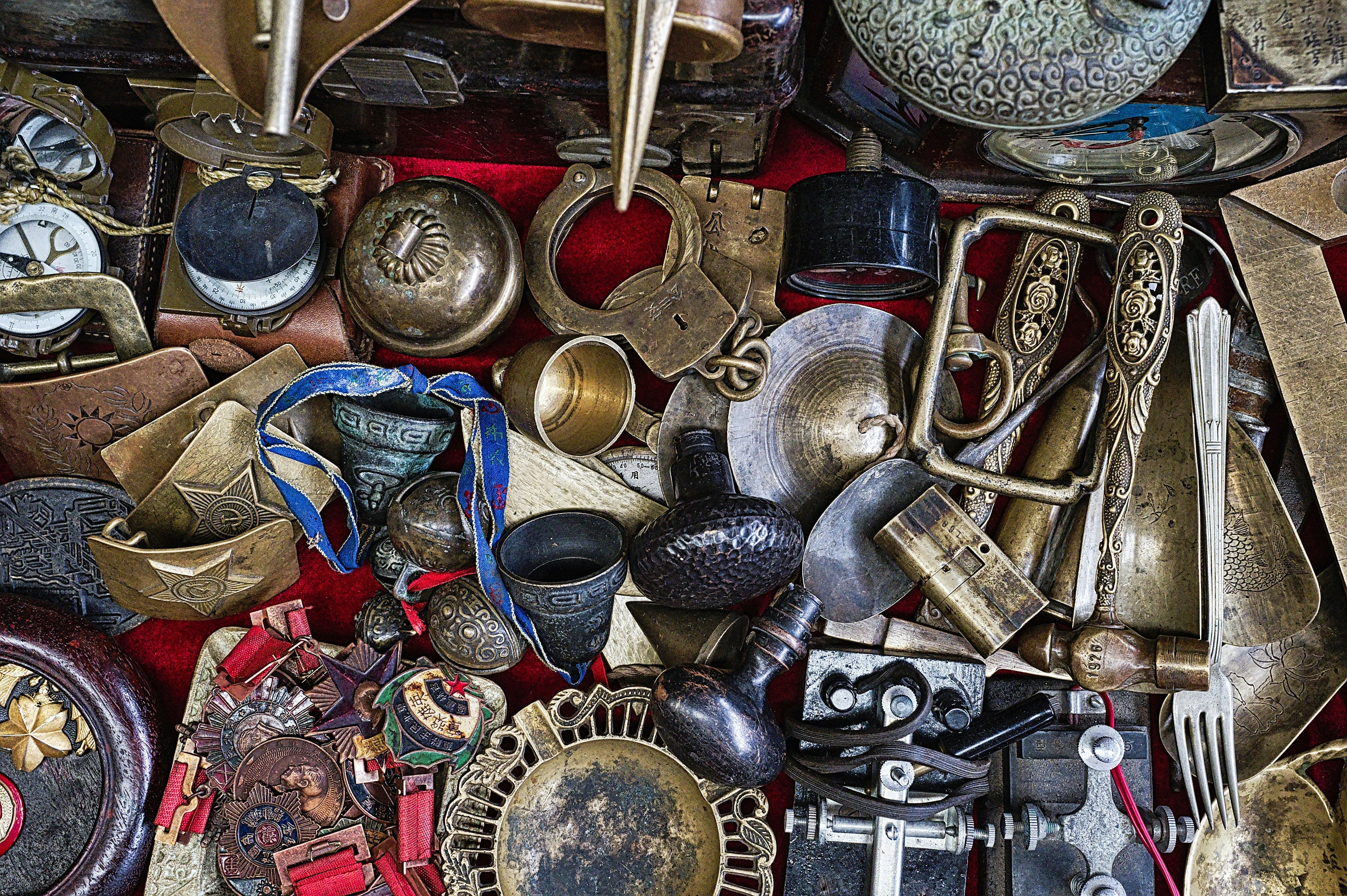Published by Front Street Antiques
Photo by Eric Prouzet on Unsplash
Are you intrigued by the allure of antiques and eager to embark on your own collection journey?
Delving into the world of antiquing can be a rewarding and fascinating pursuit for beginners. How to start an antique collection is a question that may seem daunting at first, but with the right approach, anyone can begin curating their own unique assortment of historical treasures. From understanding different eras and styles to learning how to spot valuable pieces, this beginner's guide will provide you with essential tips and insights to kickstart your antique collecting passion. So, let's dive in and uncover the enchanting world of antiques together!
Understanding the Value of Antiques
When starting an antique collection, it's crucial to grasp how to start antique collection. This involves familiarizing yourself with various types of antiques, their origins, and the methods for assessing their worth. By gaining insight into what renders an object valuable, you can navigate your collecting endeavors with awareness.
Antiques hold significance due to their historical context, craftsmanship, and scarcity. Delving into the history behind each item provides a deeper appreciation for its value and uniqueness. Understanding the craftsmanship involved in creating antiques sheds light on the effort and skill required in producing them. Moreover, recognizing the rarity of certain pieces enhances their allure and desirability among collectors.
To determine the value of an antique accurately, consider factors such as age, condition, provenance, and market demand.
Age plays a significant role as older items often carry more historical weight and are sought after by collectors. A true antique is considered 100 years or older.
The condition of an antique also greatly influences its value; well-preserved pieces command higher prices than those showing signs of wear or damage.
Provenance refers to an item's documented history of ownership or previous sales records. Establishing provenance adds credibility and authenticity to an antique, thus increasing its value.
Additionally, staying informed about current market trends and demands enables you to gauge the potential worth of different antiques accurately.
By immersing yourself in the world of antiques and honing your understanding of what makes them valuable, you lay a solid foundation for embarking on your collecting journey. Armed with this knowledge, you can confidently assess potential acquisitions and make informed decisions that align with your collecting goals.
Researching Different Antique Categories
Begin by exploring various antique categories that catch your eye. What are you passionate about? What do you already own and want to expand upon? Whatever you're interested in, use that as a great foray into the antique world and as you begin to collect, you can hone in to find your niche.
Visit local antique stores (like Front Street Antiques!), browse online marketplaces, and attend auctions to learn about different styles and eras and watch as your collection starts to grow, encompassing other items of interest, either related to your niche or eclectic.
Just like with any hobby, your interests and passions will guide you. Above all, it's essential to start small with your collection and grow it over time as you become more familiar with the world of antiques.
Building Relationships with Dealers and Collectors
Connecting with antique dealers, collectors, and enthusiasts is crucial when starting an antique collection. By interacting with these individuals, you can gain valuable knowledge and access to unique pieces for your collection. Attending antique fairs, participating in collector forums, and engaging with the community are effective ways to expand your network in the world of antiques.
Interacting with dealers allows you to learn about different types of antiques available in the market. They can offer guidance on identifying authentic pieces and provide insights into current trends. Building a rapport with dealers may lead to special discounts or early access to new arrivals, giving you an advantage in growing your collection.
Engaging with fellow collectors provides a platform to exchange information and experiences. Joining collector forums or social media groups enables you to connect with like-minded individuals who share your passion for antiques. By participating in discussions and sharing your own insights, you contribute to the community while expanding your knowledge base.
Attending antique fairs offers a hands-on experience where you can browse through a wide variety of items from different eras. Interacting directly with dealers at these events allows you to ask questions, inspect items up close, and negotiate prices. Building relationships at these fairs can lead to future opportunities for acquiring specific pieces that match your collecting interests.
Networking within the antique community opens doors to new connections and potential collaborations. By actively participating in events and online platforms dedicated to antiques, you position yourself as a knowledgeable enthusiast eager to learn more about this fascinating world. Establishing strong relationships with dealers, collectors, and enthusiasts enhances your overall collecting experience by providing valuable insights and opportunities for growth within the hobby of antiquing.
Unveiling the Timeless Journey: Embracing the Art of Antique Collection
As you navigate the intricate world of antiques, understanding their value becomes a gateway to a captivating and somewhat addicting journey. Building relationships with dealers and collectors enriches this experience, offering insights and connections that elevate our collections. Remember, starting an antique collection is not merely about acquiring objects; it's about preserving history and stories within each piece.
By following these steps and immersing yourself in the world of antiquities, you embark on a fulfilling hobby and perhaps, even a career!
